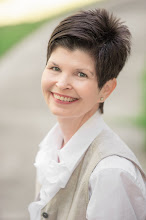The world is loud and people are always talking, more now than ever with the advent of social networking. It doesn’t matter anymore what time of the night or day it is, you can find someone to chat with, if not in person or via telephone then virtually, through Facebook, or Twitter, or any number of virtual venues. Sometimes it’s overwhelming, so many voices, opinions, words, noise. I think everyone, regardless of how extroverted they are, how socially inclined, feels oppressed by all the racket. I think that’s why when I walked into a Barnes & Noble not long ago and saw a book titled QUIET, I was automatically drawn to it. I scarcely bothered to read the endorsements of the author, Susan Cain, nor did I care much about her credentials. It was that word: quiet. I couldn’t resist it like the man in the desert thirsting for water. I have had the thought in the past that the human brain is a bit like a car’s accelerator and once in a while the driver really does need to take their foot off the gas.

QUIET gives so much support for the beneficial effect of pure silence, of aloneness, versus the sometimes deleterious effects of near constant noise. One of the aspects of the book that I found compelling was the history behind introversion and extroversion. Back in the day, think in terms of Abraham Lincoln’s and Albert Einstein’s eras, introversion was valued above extroversion, but in the 1950’s that changed. It became imperative in public schools that children be judged/graded/rewarded/honored/accepted based on their ability to socialize. It wasn’t enough that you could read/write/create/use your imagination. It boiled down to whether you could be popular and well liked by others in addition to being honorable, virtuous and smart.
From the text: “In the nation’s earlier years it was easier for introverts to earn respect. America once embodied what the cultural historian Warren Susman called a “Culture of Character,” which valued inner strength, integrity, and the good deeds you performed when no one was looking. You could cut an impressive figure by being quiet, reserved, and dignified. Abraham Lincoln was revered as a man who did not “offend by superiority,” as Emerson put it. According to QUIET, as the Culture of Character declined, it gave rise to our modern-day Culture of Personality.
Although some critics/ reviewers have suggested QUIET is biased toward introverted types, I didn’t find that to be so … maybe a bit, but for the most part I found the treatment evenhanded. Consider this from the text:
“[I]ntroverts like to be alone--and introverts enjoy being cooperative. Studies suggest that many of the most creative people are introverts, and this is partly because of their capacity for quiet. Introverts are careful, reflective thinkers who can tolerate the solitude that the idea-generation requires. On the other hand, implementing good ideas requires cooperation, and introverts are more likely to prefer cooperative environments, while extroverts favor competitive ones.”
To me, this suggests, sensibly, for my money, that it takes both types to bring about the desires and inventions of mankind. Regardless of which category we fall into, we can use a hand from the other. Nothing was ever created in a vacuum. As an introvert I have to say I was glad for the validation. It was a true and real relief to learn that living in my head is not the curse I’ve imagined it to be all these years. I’m not retarded, odd, or mentally ill. And it was interesting to discover that introverts can often be very social in the right circumstances, that, in fact, they can be extroverts, which I have been at times in my life. It works the other way, too. One note I was inspired to jot down while reading is that people will make a lot of noise in their heads to keep from having to confront, learn, deal with who they really are.
QUIET explains a lot about our psyche, the way we work and why. It is thoughtful and insightful, gentle, but very compelling in its tone. It is quiet and I highly recommend it.
Visit Susan at her website, which itself is worth the trip.

This sounds like a really interesting read, I'll definitely have to add it to my (never ending) TBR pile :) Thanks for the tip, Barbara!
ReplyDelete